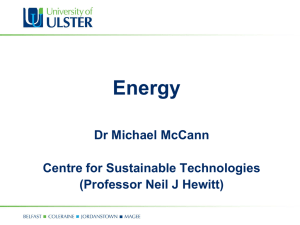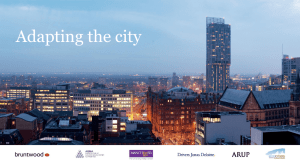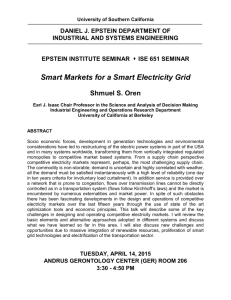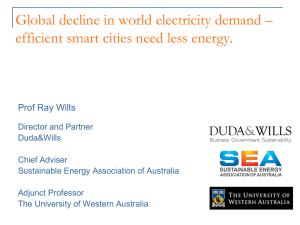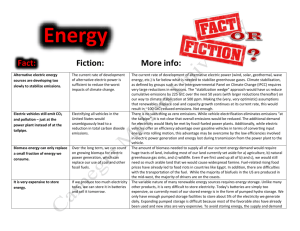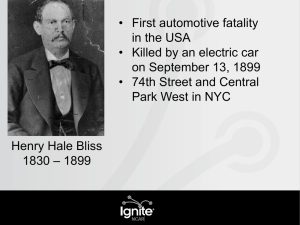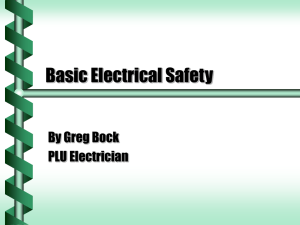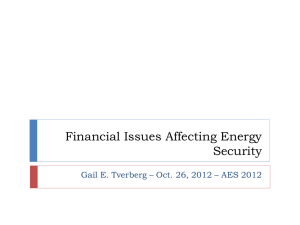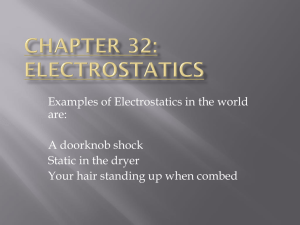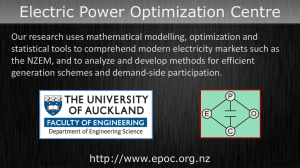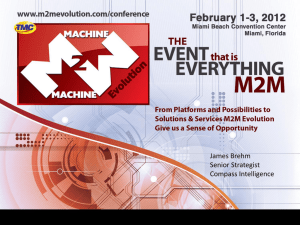Energy_Transfer_2014
advertisement
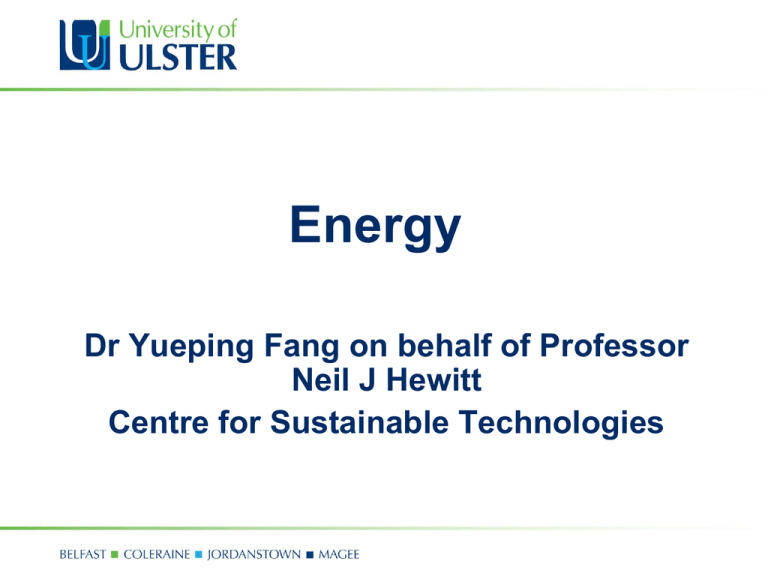
Energy Dr Yueping Fang on behalf of Professor Neil J Hewitt Centre for Sustainable Technologies How is energy transferred? • Energy transfer through heat http://www.youtube.com/watch?v=OBVbV5dpCCA • Energy transfer in different forms http://www.youtube.com/watch?v=fe_fFFrVl7U Energy transfers Global state of energy reserves Consequences of energy use UK and Ireland Challenges Renewables Smart systems Global status of conventional energy sources Oil Gas Coal Nuclear Electricity Overall electricity use Oil Oil Gas Major gas trade movements Coal Nuclear energy Nuclear energy means the energy of an atomic nucleus, which can be released by fusion or fission or radioactive decay Well controlled-electricity Out of control-disaster Nuclear energy consumption by region Hydroelectricity Hydroelectricity consumption by region Three gorges dam in China What is renewable energy? It comes from resources which are continually replenished on a human timescale such as: sunlight, wind, rain, tides, waves and geothermal heat Primary energy Consequences Poverty Environment Security Costs Poverty Environment Global temperature increases Energy security Energy investment $22 Trillion! What is Germany doing? http://www.youtube.com/watch?v=25bmXpEPosc WHAT MIGHT WE DO IN THE UK? Drivers for Energy Changes UK has a target to reduce carbon emissions by 80% by 2050 1. Maintaining a secure energy system 2. Providing affordable energy 3. Enabling economic growth 4. Limiting impact on the environment Challenges for Energy The key challenge is to rapidly decarbonise our energy supply Increase the efficiency of buildings, industry and transport Develop/enhance existing networks/infrastructure to support the changing face of energy Accelerate the development and deployment of affordable green energy technologies UK Energy consumption by sector UK Low Carbon Transition Plan 34% cut in CO2 emissions by 2020 7M homes insulated 1.5M homes generating electricity 40% electricity is low carbon Halving gas imports Reducing car emissions by 40% etc Technologies? Solar photovoltaics Wind turbines Small scale hydro Solar hot water Ground source heat pumps Air source heat pumps Biomass Micro-chp Wave/Tidal etc Wind Energy? On shore wind farm Off shore wind farm European offshore wind atlas Wind Impacts Forecasting Accuracy Wind energy can be simulated using CFD technology System M arginal Price by Trading Period Electricity 01 Jan Price 2008 to 31st Aug 2008 600 500 €/MWh 400 300 200 100 0 1 2 3 4 5 6 7 8 9 10 11 12 13 14 15 16 17 18 19 20 21 22 23 24 25 26 27 28 29 30 31 32 33 34 35 36 37 38 39 40 41 42 43 44 45 46 47 48 Trading Period Mean + 1σ Mean - 1σ Max SMP Mean SMP Min SMP The Elephant in the Room? ELECTRIC VEHICLES Vehicles….. Charge electricity/time: 100 miles distance Cost of unit of electricity 10p off-peak 20p peak If using off-peak electricity, electricity costs equivalent to a tank of petrol: €2 to €5, Issues to consider… What is the % of vehicles that use is under 50km (return)? Can battery easily meet most daily needs? But occasional needs for longer journey both actual and psychological? Plug-in Hybrids Battery Electric Vehicles Battery Exchange Fast Charging of Battery Fast Charging Issues with heat management and electrical safety 80% charge (125 km) in 30 minutes European Standard underway Definitions etc…. SMART GRIDS A smart grid uses information and communications technology to gather and act on information of the suppliers and consumers, in an automated fashion to improve the efficiency, reliability, economics, and sustainability of the production and distribution of electricity What is a Smart Grid? The Smart House? Added green power sources High-speed, networked connections Plug-in hybrid electric cars Real-time and green pricing Signals Customer interaction with utility Smart thermostats, appliances and in-home control devices Conclusions Network will change Wind resources Tidal and Wave to come Smart metering an invention of bad policy Can we afford them? Can we afford not to? Thanks for your attentions
